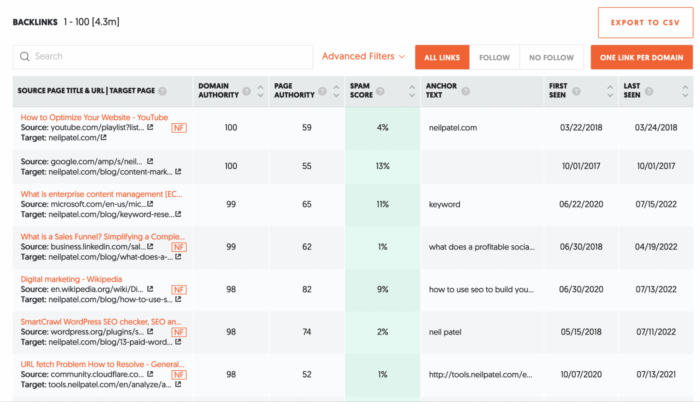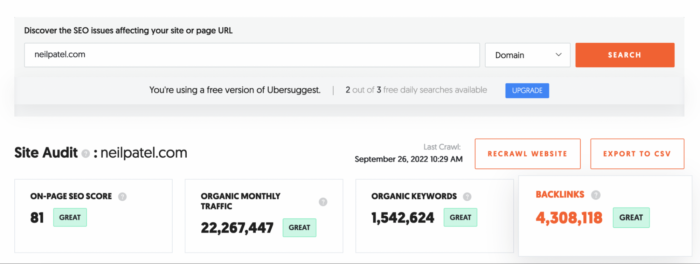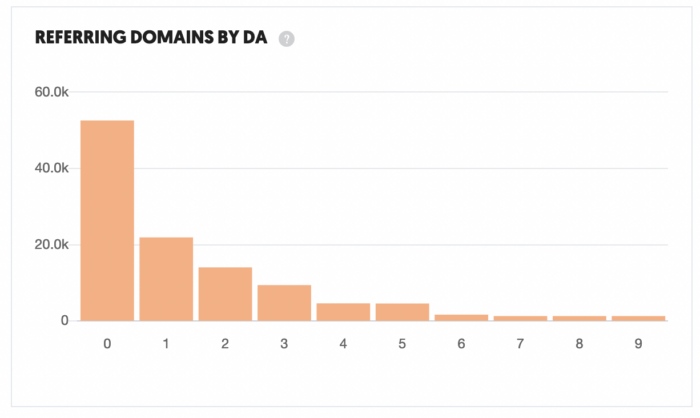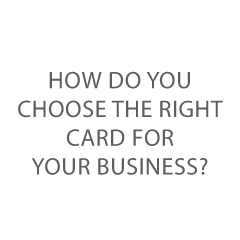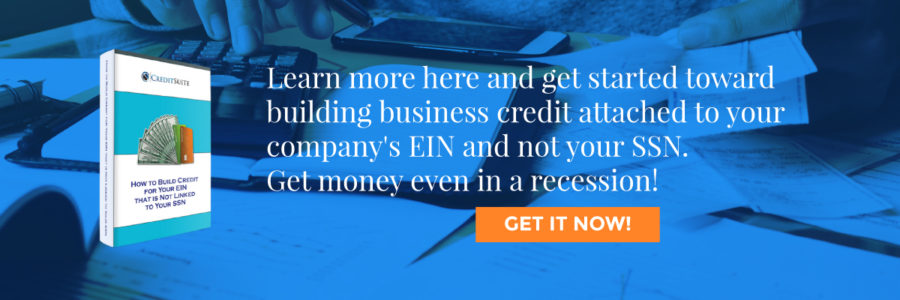Thinking of throwing in the towel, as it looks like the US slides further and further into a recession? Don’t! This can be a great time to regroup and get your business set up for even more success down the line. Building business credit should be on your to-do list. So, find out the best way to build business credit in a recession.
Learn the Best Way to Build Business Credit in a Recession
We can show you the best way to build business credit in a recession! Get the kind of business funding that can take your business to new heights! And it can happen no matter what goes on with the economy.
Economic Downturns and Company Funding
The United States’s economy has been through any variety of changes throughout the years. Our financial fortunes can depend upon developments in technology, diplomatic ties (or cutting those ties), the weather, and also more. Business credit, fortunately, is an asset which you can develop even during financial slumps. Nonetheless, you may need to get a little creative with it, and with various other forms of business funding.
The Best Way to Build Business Credit in a Recession – But What’s Business Credit, Anyway?
Small business credit is credit in a business’s name. It doesn’t link to a business owner’s personal credit, not even if the owner is a sole proprietor and the sole employee of the small business.
Accordingly, a business owner’s business and individual credit scores can be very different.
The Benefits
Because business credit is distinct from consumer, it helps to secure a business owner’s personal assets, in the event of a lawsuit or business bankruptcy.
Also, with two separate credit scores, a business owner can get two different cards from the same merchant. This effectively doubles buying power.
Another benefit is that even start-ups can do this. Heading to a bank for a business loan can be a recipe for frustration. But building company credit, when done the right way, is a plan for success.
Individual credit scores rely on payments but also various other factors like credit usage percentages.
But for company credit, the scores actually just hinge on whether a company pays its debts on a timely basis.
The Best Way to Build Business Credit in a Recession – The Process
Building business credit is a process, and it does not occur automatically. A business will need to actively work to build company credit.
Nonetheless, it can be done easily and quickly, and it is much speedier than building consumer credit scores.
Merchants are a big aspect of this process.
Undertaking the steps out of order will lead to repetitive rejections. Nobody can start at the top with business credit. For example, you can’t start with retail or cash credit from your bank. If you do, you’ll get a denial 100% of the time.
The Best Way to Build Business Credit in a Recession – Enhancing Company Fundability
A company must be fundable to credit issuers and vendors.
Therefore, a company will need a professional-looking web site and email address. And it needs to have site hosting bought from a vendor like GoDaddy.
Also, business telephone numbers must have a listing on ListYourself.net.
Also, the business telephone number should be toll-free (800 exchange or comparable).
A business will also need a bank account dedicated strictly to it, and it needs to have all of the licenses essential for operation.
Licenses
These licenses all have to be in the exact, appropriate name of the company. And they need to have the same business address and telephone numbers.
So bear in mind, that this means not just state licenses, but possibly also city licenses.
Learn more here and get started toward establishing small business credit in a recession.
The Best Way to Build Business Credit in a Recession – Working with the IRS
Visit the Internal Revenue Service website and get an EIN for the company. They’re free of charge. Select a business entity such as corporation, LLC, etc.
A company may begin as a sole proprietor. But they absolutely need to change to a type of corporation or an LLC.
This is to limit risk. And it will make the most of tax benefits.
A business entity matters when it concerns tax obligations and liability in case of a lawsuit. A sole proprietorship means the owner is it when it comes to liability and taxes. Nobody else is responsible.
The best thing to do is to incorporate. You should only look at a DBA as an interim step on the way to incorporation.
The Best Way to Build Business Credit in a Recession – Starting Off the Business Credit Reporting Process
Begin at the D&B website and obtain a cost-free D-U-N-S number. A D-U-N-S number is how D&B gets a small business into their system, to produce a PAYDEX score. If there is no D-U-N-S number, then there is no record and no PAYDEX score.
Once in D&B’s system, search Equifax and Experian’s web sites for the business. You can do this at www.creditsuite.com/reports. If there is a record with them, check it for correctness and completeness. If there are no records with them, go to the next step in the process.
By doing this, Experian and Equifax will have something to report on.
Starter Vendor Credit
First you should establish tradelines that report. Then you’ll have an established credit profile, and you’ll get a business credit score.
And with an established business credit profile and score you can start to get credit for numerous purposes, and from all sorts of places.
These kinds of accounts have the tendency to be for things bought all the time, like marketing materials, shipping boxes, outdoor workwear, ink and toner, and office furniture.
But first off, what is trade credit? These trade lines are credit issuers who give you starter credit when you have none now. Terms are usually Net 30, instead of revolving.
Therefore, if you get an approval for $1,000 in vendor credit and use all of it, you need to pay that money back in a set term, like within 30 days on a Net 30 account.
Details
Net 30 accounts have to be paid in full within 30 days. 60 accounts have to be paid in full within 60 days. Unlike revolving accounts, you have a set time when you have to pay back what you borrowed or the credit you used.
To launch your business credit profile the right way, you should get approval for vendor accounts that report to the business credit reporting bureaus. As soon as that’s done, you can then make use of the credit.
Then repay what you used, and the account is on report to Dun & Bradstreet, Experian, or Equifax.
Vendor Credit – It Makes Sense
Not every vendor can help in the same way true starter credit can. These are vendors that grant approval with very little effort. You also want them to be reporting to one or more of the big three CRAs: Dun & Bradstreet, Equifax, and Experian.
As you get starter credit, you can also start to get credit from retailers. This is to continue to demonstrate you are reliable and pay punctually. Here are some stellar choices from us: https://www.creditsuite.com/blog/5-vendor-accounts-that-build-your-business-credit/
Uline
Uline is a true starter vendor. You can find them online at www.uline.com. They sell shipping, packing, and industrial supplies, and they report to Dun & Bradstreet and Experian. You MUST have a D-U-N-S number and an EIN before starting with them. They will ask for your business bank information. Your company address must be uniform everywhere. You need for an order to be $50 or more before they’ll report it. Your first few orders may need to be prepaid initially so your company can get approval for Net 30 terms.
- How to apply with them:
- Add an item to your shopping cart
- Go to checkout
- Select to Open an Account
- Select to be invoiced
Quill
Quill is another true starter vendor. You can find them online at www.quill.com. They sell office, packaging, and cleaning supplies. And they also sell toner, office furniture, and even shipping and school supplies. They report to Dun and Bradstreet every quarter.
To apply, you MUST have a D&B PAYDEX score. If not given a Net 30 they will ask you to do prepaid orders of $100.00. Normally any prepaid order won’t report but you would need them to have given you a Net 30 account. Net 30 accounts require $50.00 purchase to report.
New business or businesses with no credit history may need to prepay purchases until Net 30 approval. Terms are Net 30.
- Here’s how to qualify:
- Your business entity must be in good standing with the applicable Secretary of State
- You must have an EIN and a D-U-N-S number
- Business address (it has to match everywhere)
- Business license (if applicable)
- A corporate bank account
Apply online or over the phone.
Grainger Industrial Supply
Grainger Industrial Supply is also a true starter vendor. You can find them online at www.grainger.com. They sell hardware, power tools, pumps and more. They also do fleet maintenance. And they report to D&B. You need a business license, EIN, and a D-U-N-S number.
- To qualify, you need the following:
- A business license (if applicable)
- An EIN number
- A business address matching everywhere
- A corporate bank account
- A D-U-N-S number from Dun & Bradstreet
Your corporate entity must be in good standing with the applicable Secretary of State. If your company does not have established credit, they will require additional documents. So, these are items like accounts payable, income statement, balance sheets, and the like.
Apply online or over the phone.
The Best Way to Build Business Credit in a Recession – Accounts That Do Not Report
Non-reporting trade accounts can also be helpful. While you do want trade accounts to report to a minimum of one of the CRAs, a trade account which does not report can still be of some worth.
You can always ask non-reporting accounts for trade references. Additionally, credit accounts of any sort should help you to better even out business expenses, consequently making budgeting less complicated.
Store Credit
Store credit comes from a variety of retail companies.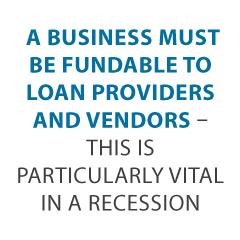
You must use your Social Security Number and date of birth on these applications for verification purposes. For credit checks and guarantees, use the small business’s EIN on these credit applications.
Fleet Credit
Fleet credit is from companies where you can buy fuel, and fix and maintain vehicles. You must use your Social Security Number and date of birth on these applications for verification purposes. For credit checks and guarantees, make sure to apply using the business’s EIN.
Learn more here and get started toward establishing small business credit in a recession.
Cash Credit
These are businesses such as Visa and MasterCard. You must use your SSN and date of birth on these applications for verification purposes. For credit checks and guarantees, use your EIN instead.
These are often MasterCard credit cards.
Learn more here and get started toward establishing small business credit in a recession.
The Best Way to Build Business Credit in a Recession – Monitor Your Business Credit
Know what is happening with your credit. Make certain it is being reported and deal with any inaccuracies ASAP. Get in the habit of taking a look at credit reports and digging into the specifics, and not just the scores.
We can help you monitor business credit at Experian and D&B for 90% less than it would cost you at the CRAs.
Update Your Data
Update the data if there are mistakes or the data is incomplete. At D&B, you can do this at: https://iupdate.dnb.com/iUpdate/viewiUpdateHome.htm. For Experian, go here: www.experian.com/small-business/business-credit-information.jsp. So for Equifax, go here: www.equifax.com/business/small-business.
The Best Way to Build Business Credit in a Recession – Fix Your Business Credit
So, what’s all this monitoring for? It’s to challenge any inaccuracies in your records. Mistakes in your credit report(s) can be taken care of. But the CRAs normally want you to dispute in a particular way.
Get your company’s PAYDEX report at: www.dnb.com/about-us/our-data.html. Get your company’s Experian report at: www.businesscreditfacts.com/pdp.aspx?pg=SearchForm. And get your Equifax business credit report at: www.equifax.com/business/credit-information.
Disputes
Disputing credit report inaccuracies generally means you mail a paper letter with duplicates of any proof of payment with it. These are documents like receipts and cancelled checks. Never mail the original copies. Always send copies and keep the original copies.
Fixing credit report inaccuracies also means you precisely itemize any charges you dispute. Make your dispute letter as clear as possible. Be specific about the concerns with your report. Use certified mail so that you will have proof that you mailed in your dispute.
The Best Way to Build Business Credit in a Recession – A Word about Building Business Credit
Always use credit smartly! Don’t borrow more than what you can pay off. Monitor balances and deadlines for payments. Paying promptly and in full will do more to raise business credit scores than nearly anything else.
Building company credit pays. Good business credit scores help a small business get loans. Your credit issuer knows the small business can pay its financial obligations. They recognize the small business is bona fide.
The business’s EIN links to high scores and lenders won’t feel the need to ask for a personal guarantee.
The Best Way to Build Business Credit in a Recession – Takeaways
Business credit is an asset which can help your company for many years to come. The recession will not last forever.
The post What’s the Best Way to Build Business Credit in a Recession? We Have the Secret! appeared first on Credit Suite.



